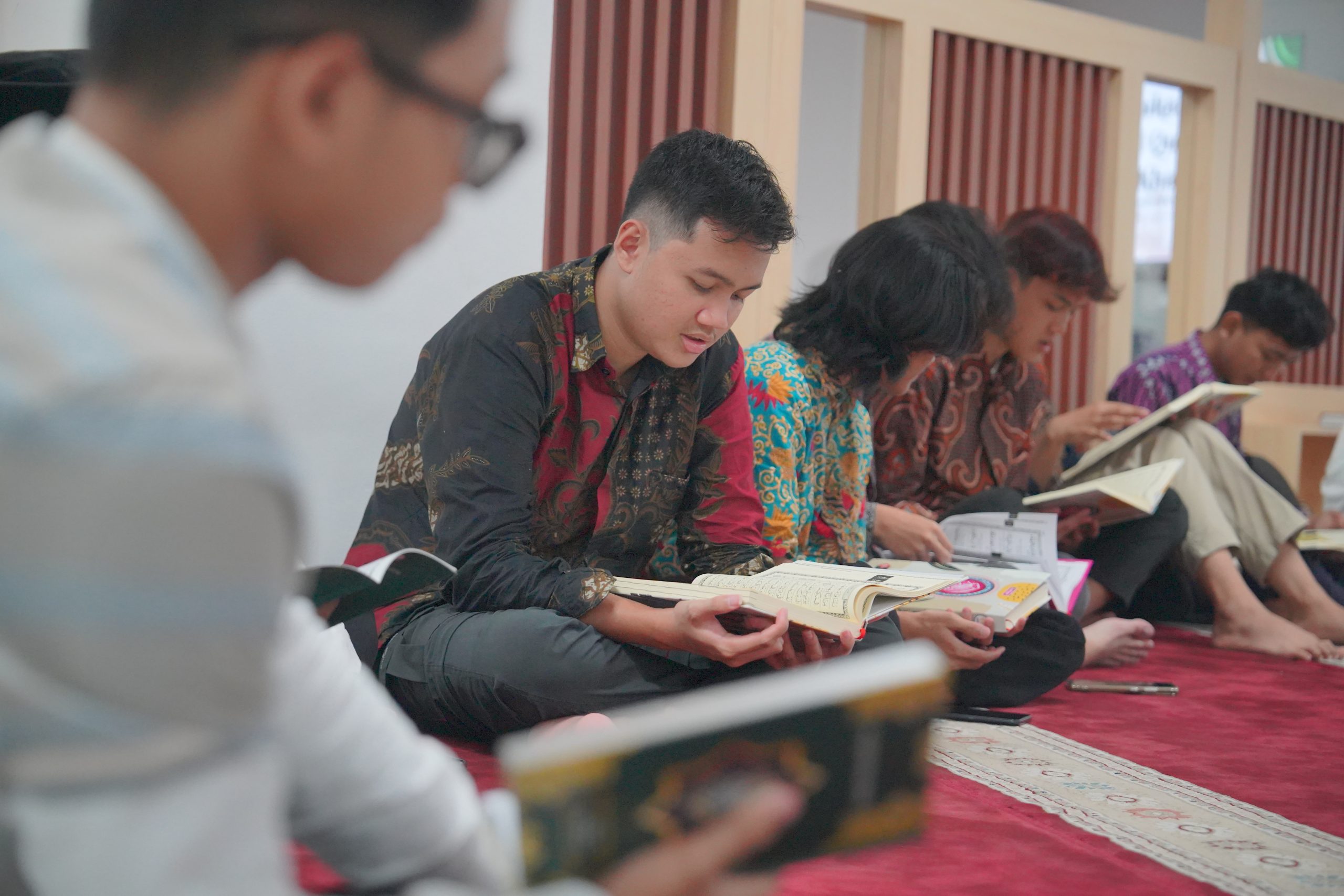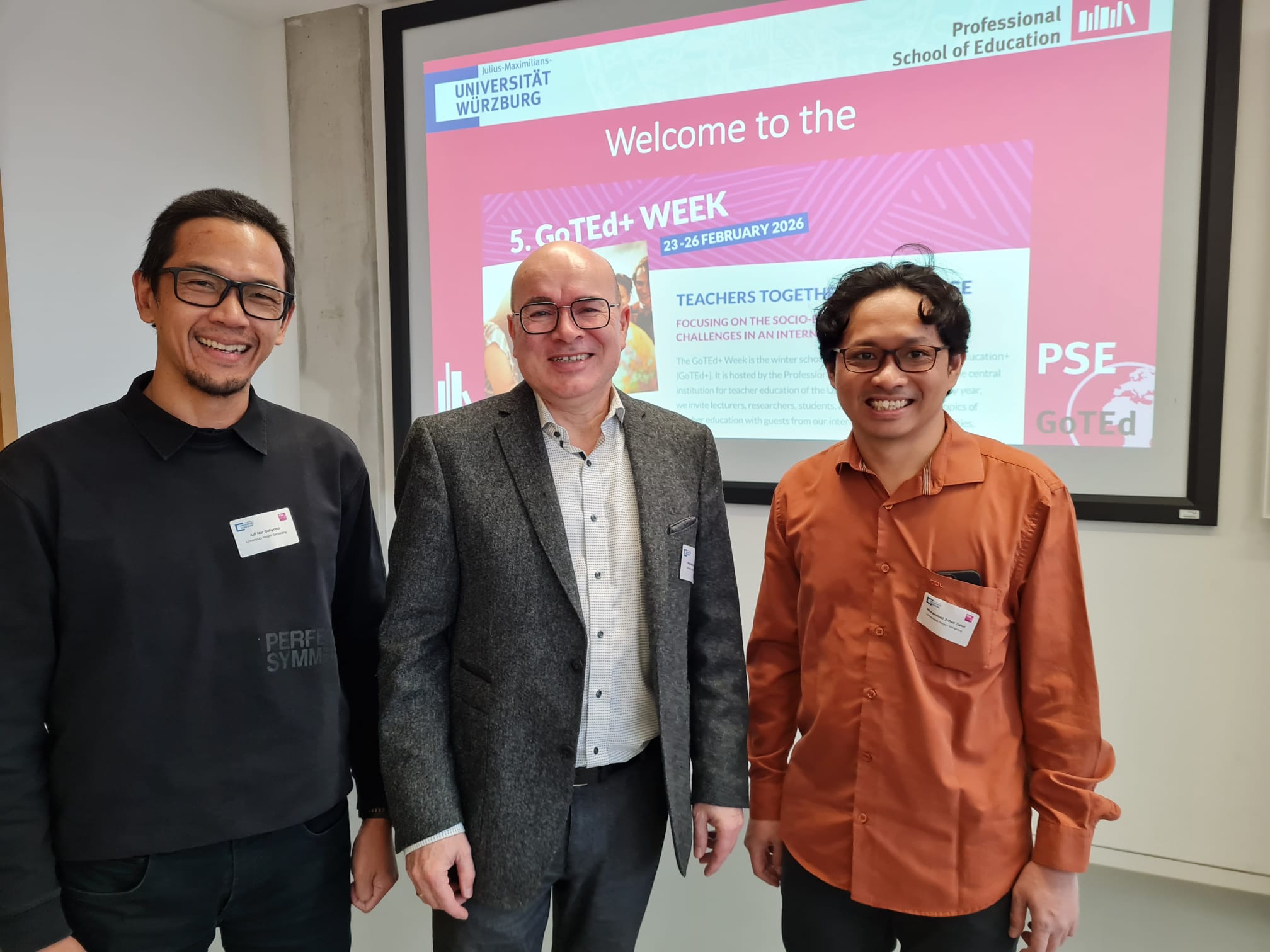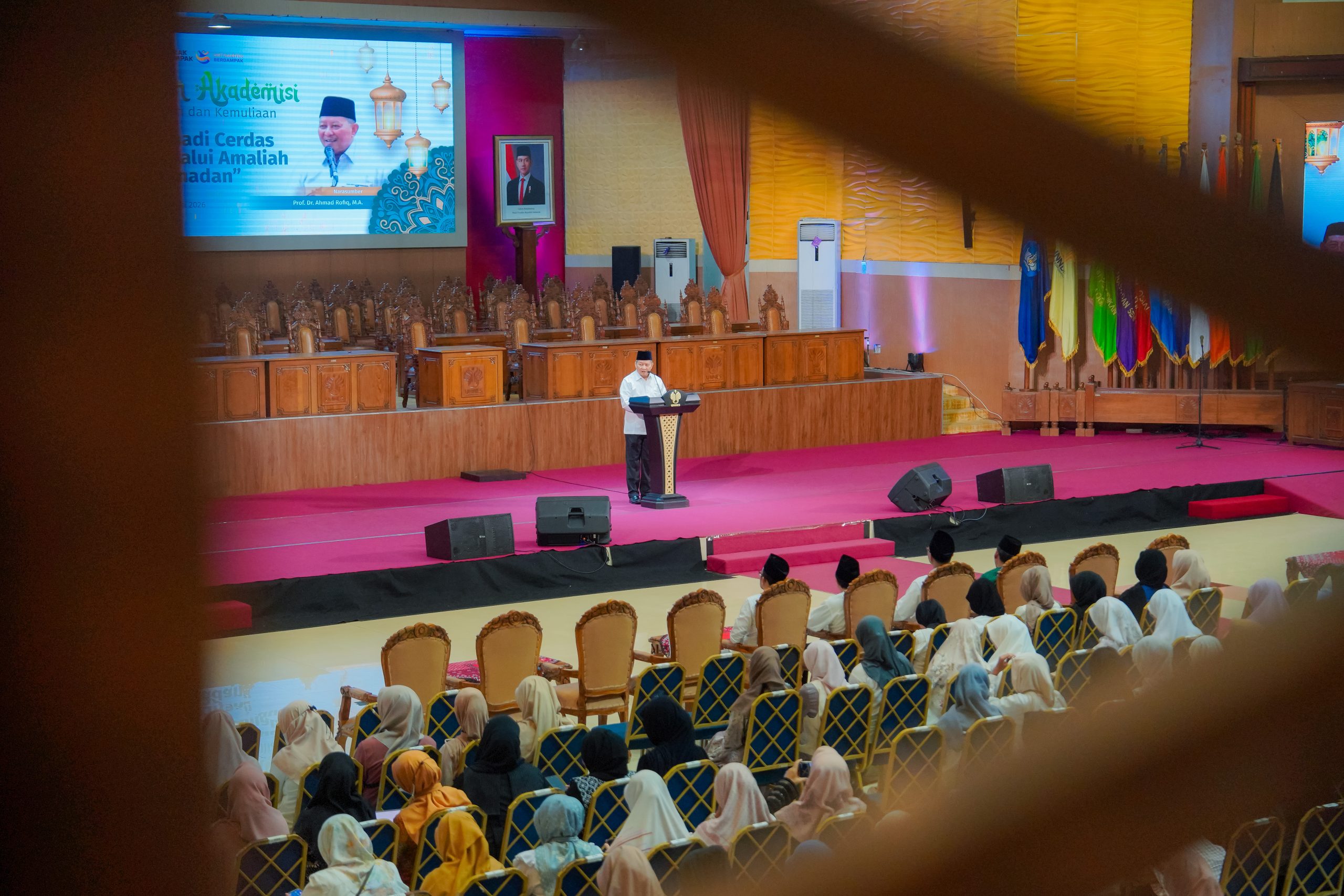Universitas Negeri Semarang (UNNES) mengadakan Seminar Nasional secara daring dengan aplikasi Zoom dengan tema Pencegahan Radikalisasi di Lingkungan Perguruan Tinggi, Selasa,(4/8).
Pemateri Rektor UNNES Prof Dr Fathur Rokhman MHum, Kepala POLDA Jateng Irjen Pol Drs Ahmad Lutfi SH SSt MK, Koordinator Nasional Jaringan Gusdurian Alissa Qotrunnada Munawaroh Wahid, Anggota DPR RI Nusron Wahid SS ME dan Direktur Pusat Studi Anti Radikalisme dan Terorisme (PUSARA UNNES) Dr Ali Masyhar SH MH.
Prof Fathur Rokhman mengutarakan bahwa Kampus UNNES konsen terhadap anti radikalisme dan terorisme, hal ini terwujud dengan adanya deklarasi dari Semarang untuk Indonesia yang berisi pertama menjunjung tinggi NKRI berdasarkan Pancasila sebagai pandangan hidup bangsa dan UUD 1945, kedua menjaga semboyan Bhineka Tunggal Ika, ketiga anti radikalisme/terorisme, keempat anti narkoba/obat terlarang, dan kelima cinta tanah air dan bela negara.
Disamping deklarasi, pencegahan radikalisme dan terorisme di kampus dilakukan juga dengan kerjasama berbagai mitra diantaranya MoU antara UNNES dan BNPT, bermitra dengan Polda Jateng yaitu Pengembangan Forum Komunikasi Kepolisian Masyarakat dan Mahasiswa (FKMM), adanya upaya pencegahan peredaran narkoba dan obat terlarang dan tes narkoba.
Kemudian, juga bermitra dengan Pondok Pesantren dan Lingkar kampus yaitu program UNNES Bersholawat, UNNES Berdizkir, dan bakti sosial lingkar kampus.
Prof Fathur juga menyampaikan bahwa setiap mahasiswa baru di UNNES juga mengikuti kegiatan pendidikan bela negara yang dilaksanakan di Rindam Kodam IV Diponegoro.
Hal senada juga disampaikan Kepala Polda Jateng Irjen Pol Drs Ahmad Lutfi SH SSt MK bahwa pendidikan adalah menjadi salah satu faktor dalam proses pencegahan terorisme dan radikalisme,
Ada lima cara dalam mencegah masuknya paham radikalisme ke Perguruan Tinggi yaitu pertama ada regulasi di Perguruan Tinggi yang bernuansa bela negara/cinta tanah air/kode etik mahasiswa/surat pernyataan komitmen bersedia melaksanakan peraturan kampus termasuk komitmen kepada 4 konsensus dasar yaitu Pancasila, UUD 1945, Bhineka Tunggal Ika dan NKRI.
Kedua adanya program pendampingan UKM/BEM dan setiap kegiatan mahasiswa oleh Dosen yang kompeten, ketiga adanya kerjasama dengan instansi terkait pencegahan penanggulangan Radikalisme Terorisme di kampus, keempat berikan dukungan positif untuk organisasi kemahasiswaan yang menjadi kompetitor bagi organisasi intoleran dan radikal dan terakhir adalah tingkatkan intensitas, kualitas dan kuantitas giat mahasiswa dalam rangka peningkatan kecintaan kepada NKRI dan 4 Konsensus dasar.
Lebih spesifik, berdasarkan penelitian dan survey yang disampaikan oleh Anggota DPR RI Nusron Wahid SS ME menyimpulkan bahwa gerakan radikalisme ini telah masuk yang menjadi target adalah kalangan influencer (kelompok berpengaruh) yaitu profesional,birokrat,pengusaha sektor strategis, para Dai populer di media, Artis, Atlet berprestasi, tenaga pendidik dan tentunya termasuk didalamnya yang dipilih adalah mahasiswa berprestasi, artinya mahasiswa yang disiplin,baik dan cerdas. Tujuan dari para influencer menjadi target adalah mempermudah memberikan sugesti kepada orang orang disekitarnya atau masyarakat.
terdapat ciri dan tahap dalam proses menjadi radikalisme yang di bagi menjadi 3 bagian besar yaitu tahap pertama Fikrah (pemikiran) artinya klaim merasa yang paling benar, tahap kedua Amaliah artinya mempertentangkan sunnah dan tradisi masyarakat, tahap ketiga dibagi menjadi dua yaitu Harakah gerakan propaganda yaitu mempertentangkan syariat dengan negara dan Harakah gerakan ekstrem yaitu mengangkat senjata, pada terakhir ini Negara sudah dalam kondisi berbahaya, imbuh Nusron.
Hal ini dikuatkan juga oleh direktur PUSARA UNNES yang menyampaikan fakta bahwa ada 19,4 % PNS terindikasi anti pancasila (survey dilakukan pada 10 september hingga 5 oktober 2017 di 6 kota yaitu Jakarta,bandung, semarang, Surabaya, medan dan makassar), ada 17.8% mahasiswa dan 18,4% pelajar yang setuju khilafah (Alvara Research), 39% mahasiswa terpapar radikalisme (BIN,2018), paham konservatif keagamaan meningkat (24 % mahasiswa dan 23,3% pelajar SMA berpaham konservatif), 7 Universitas Besar di Indonesia terpapar terorisme ( BNPT,2018), Wahid Institute menyebutkan 11 juta orang bersedia melakukan tindakan radikal, 0,4 % penduduk Indonesia pernah bertindak radikal dan 7,7 % mau bertindak radikal jika memungkinkan.
Kecenderungan mengapa mahasiswa menjadi target radikalisme adalah karena cenderung lebih kritis kepada pemerintah ( misal menyoal ketidakadilan, kesejahteraan sosial dan lain lain), berusia muda umumnya masih labil, masih dalam tahap mencari jatidiri, melek teknologi dan sikap serba instan. Imbuh Gus Ali panggilan akrabnya.
Diakhir seminar Rektor UNNES Prof Fathur berharap melalui seminar ini terdapat tindak lanjut dan pengembangan materi agar semua civitas akademika dapat ikut berperan aktif mencegah radikalisme dan terorisme.
Seminar ini dapat dilihat di link youtube UNNES yaitu https://www.youtube.com/watch?v=sa5-3Gd4cOw



